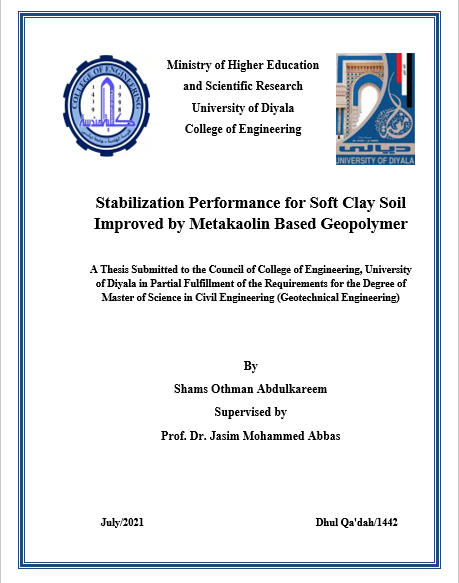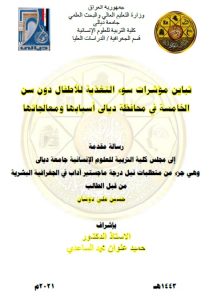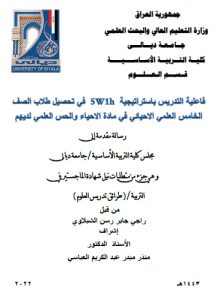ABSTRACT
For many decades, soft clay soil has been stabilized using traditional soil stabilizers like cement and lime. These traditional stabilizers produce cementations productions that improve the strength characteristics and enhance other properties for soil. However, the consumed energy to produce the traditional soil stabilizers results in substantial amounts of dangerous greenhouse gases into the environment.
The Geopolymers have gained much attention as a sustainable alternative to conventional chemical additives. Geopolymers have high compressive strengths and can be prepared from many sources by employing waste materials or natural sources. Geopolymers as soil stabilizer have been reviewed by limited researchers, although most studies were conducted on several types of soil with other materials.
In this study, four percentages of Metakaolin-based Geopolymer were used (i.e. 8, 10, 12, and 14 % by dry weight of soil), and the total liquid of the activator ratio is 38 % by dry weight of soil. The prepared samples were firstly treated thermally for four hours at different temperature (i.e. 20 °C, 40 °C, 60
°C, and 80 °C). After that, samples were placed at room temperature for specific periods 1,3,7,14, and 28 days.
This study aimed to examine the effect of using the different percentages of Metakaolin on the mechanical strength of soft clay soil under different conditions. All treated samples were conducted mainly by the unconfined compressive strength test. In addition, assess the some geotechnical properties like specific gravity, liquid and plastic limit, and compaction properties for treated soil.
Finally, the microstructure and clay minerals of natural and treated soil were observed by scanning electron microscope and the X-ray powder diffraction respectively.
It can be concluded that, the results of unconfined compressive strength illustrated that the peak of unconfined compressive strength was recorded with addition of 10 % MK cured initially at 40 °C and completes for 14 days that giving 9.92 MPa. In addition, the results of specific gravity reduce from 2.72 to 2.3 as the Metakaolin content increased. Also, the maximum dry density decreased from 16.8 kN/m3 to 15.5 kN/m3 as Metakaolin content increased, while the optimum moisture content seems to increase from 18.4 % to 24.7 % with increase Metakaolin content. Moreover, the scanning electron microscope shows the formation of cementation compounds. In addition, the X-ray powder diffraction analyses confirm the chemical composition by the production of Sodium silicate and sodium aluminosilicate hydartes.





